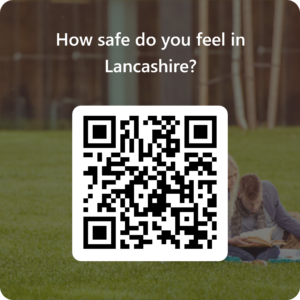
VRN Funds Additional 6,350 Policing Hours to Help Tackle Serious Violence
The Lancashire Violence Reduction Network (VRN) has funded an additional 6,354 hours of extra policing so far this year as part of ‘Operation GRIP’, which
The Emergency Navigator programme is a hospital-based intervention service that helps 10 to 25-year-olds navigate their way away from violence, (whether they have been a victim and/or a perpetrator) towards a more positive lifestyle.
It is aimed at young people who have attended the hospitals because of violence or are at risk of experiencing violence.
Navigators are a trusted adult who can build rapport with the young person and identify issues they may face in their life. This rapport is built through positive engagements, such as meeting the young person at the hospital, follow up meetings in the community, home visits, and regular telephone contact.
Navigators encourage and support young people in making healthy choices and positive plans to disrupt the cruel cycle of violence that can too easily lead to re-attendance into hospital, re-injury to self and others, and devastated communities.
Not everyone wishes to report matters to the police when they go to hospital after being assaulted. Sometimes going to hospital is a last resort for someone who needs medical attention and they may not be aware that they can also access ongoing help to manage difficult situations they may be living with.
Our ED Navigators aim to refer young people into organisations that can support them with issues such as:
– Mental health
– Housing
– Education, training and employment
– Anger management
– Community support
– Family dynamics
– Confidence and self-esteem
– Handling emotions
– Resilience building
– Exploitation (CCE/CSE)
– Bullying
– Domestic violence
– Alcohol and substance misuse
We currently have ED Navigators covering the
following A&E departments:
– Royal Blackburn Teaching Hospital
– Royal Preston Hospital
– Blackpool Victoria Hospital
– Royal Lancaster Infirmary
– Burnley General Teaching Hospital
– Accrington Victoria Hospital
– Chorley and South Ribble Hospitale
The navigator programme is an established programme that has been operating successfully in hospitals across Scotland for many years. There are similar schemes in London, South Yorkshire and elsewhere across the UK.

The Lancashire Violence Reduction Network (VRN) has funded an additional 6,354 hours of extra policing so far this year as part of ‘Operation GRIP’, which

The Lancashire Violence Reduction Network (VRN) is asking for your help to make our communities safer. We want to know how safe you feel in

This edition of the VRN newsletter is packed with exciting updates, including a chance to be involved in The Solutions Trial, a new podcast episode